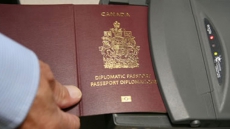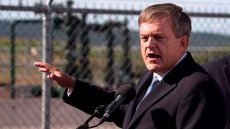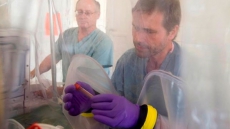OTTAWA — Canada's major banks and credit card companies have reached a deal with the federal government to cut the fees charged to merchants for credit transactions, sources familiar with the negotiations say.
The voluntary agreement could mean cost savings for up to 700,000 large, medium-sized and small businesses across the country.
However, it remains to be seen whether the cuts will translate into savings for consumers.
The deal will result in lower interchange fees charged to retailers and service providers for using credit cards to complete direct transactions, said sources speaking on condition of anonymity because they weren't authorized to discuss the matter publicly.
The fees would then be capped for an unspecified period of time.
The agreement comes after years of back-and-forth among retailers, the federal government, banks, credit card companies and the Competition Tribunal.
Interchange fees currently range between $1.50 and $3 or more for every $100 worth of transactions, depending on the credit card.
The federal Competition Bureau estimated in 2010 that credit card acceptance fees added up to $5 billion annually — a figure that has likely grown since — with about $4 billion of that coming in the form of interchange fees.
While the big banks stand to lose millions of dollars from their bottom lines, the sources say the negotiated agreement gives retailers price stability.
There are roughly 76 million credit cards issued to Canadians, who use them to pay for about half their overall purchases.
The Retail Council of Canada says high-cost premium cards have hurt merchants the most.
And says a majority of the savings from recent interchange fee reductions in the U.S. were passed on to customers.





